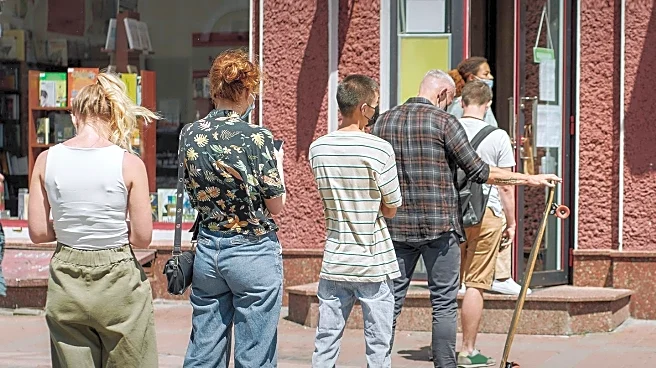What's Happening?
The Campaign for Real Ale (CAMRA) has launched a three-part documentary series focusing on community-owned pubs in the UK. The series aims to celebrate the efforts of local communities that have come together
to save their beloved pubs from closure. The first episode features the Antwerp Arms in Tottenham, London, which was saved from demolition in 2013 by local residents and CAMRA campaigners. This pub became North London’s first community-owned pub in 2015. The series will also cover the Traveller’s Rest in Skeeby, North Yorkshire, and Yr Heliwr in Nefyn, Wales, showcasing the challenges and triumphs of community ownership.
Why It's Important?
This documentary series is significant as it highlights the growing trend of community ownership as a viable solution to preserve local pubs, which are often considered the heart of their communities. The series is timely, coinciding with new legislation in England that grants communities a 'Right to Buy' local assets, including pubs. This initiative underscores the importance of community involvement in maintaining local heritage and social hubs, potentially inspiring other communities to take similar actions. The series also emphasizes the role of volunteers and the impact of grassroots movements in safeguarding cultural and social landmarks.
What's Next?
As the documentary series unfolds, it is expected to raise awareness and encourage more communities to consider ownership models to save their local pubs. The series may also influence policymakers to provide more support and funding for community ownership initiatives. The upcoming episodes will continue to explore the stories of other community-owned pubs, potentially sparking a broader conversation about the preservation of local institutions and the role of community action in shaping public policy.
Beyond the Headlines
The documentary series not only highlights the practical aspects of community ownership but also delves into the cultural and social significance of pubs as community centers. It raises questions about the sustainability of such models and the potential for community ownership to be applied to other types of local businesses. The series may also contribute to a broader understanding of how community-driven initiatives can foster social cohesion and resilience in the face of economic and social challenges.









